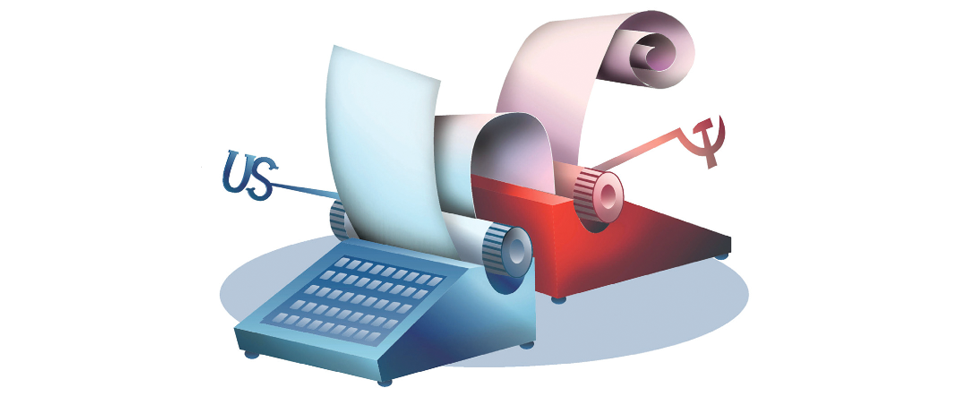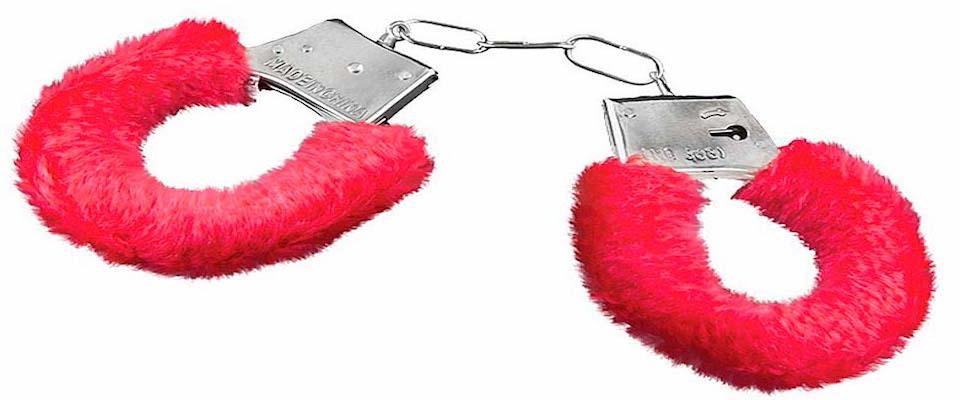“Let’s go for a walk.”
Five seemingly innocuous little words, but they were enough to scare the hell out of me. I had read enough John le Carré spy novels to know what comes next: “…where we can talk without being overheard.”
The date was July 7, 1985, at the height of the Cold War. I was sitting in a café in Kensington, having lunch with a young Soviet journalist I had met the week before named Yuri Algunov. Two months earlier I had been hired for my breakthrough job as a columnist for the Oakland Tribune, and I was eager to make my mark with a juicy story. And Yuri, I hoped, was about to give me one.
“You’re being recruited,” he said. “The first few stories will be absolutely genuine until you’re hooked, then he’ll feed you one that isn’t; and you can say goodbye to your career.”
The headlines were full of American accusations that the Russians were using a potentially poisonous, cancer-causing chemical called nitrophenylpentadienal, or NPPD, to track our diplomats in Moscow. The yellow-white powder was discovered on doorknobs, steering wheels, and other objects that our envoys were likely to touch. The Russians, of course, were denying everything.
But as soon as we got outside, Yuri glanced around, lowered his voice, and said, “You know, I could feed you stories that would give you some great scoops, like the ‘poison dust’ story. The truth is that it’s not our people who are doing it to yours; it’s actually your CIA that is doing it to us. And I have documentary evidence to prove it. Are you interested?”
“Martin,” I said to myself, “you are way out of your league.” I told him I’d think it over and rushed home and called my friend Keith, who used to work as an Air Force intelligence officer, which is like the CIA but with more planes.
“You’re being recruited,” he said. “The first few stories will be absolutely genuine until you’re hooked, then he’ll feed you one that isn’t; and you can say goodbye to your career.”
“Oh my God!” I said. “What’ll I do?”
“If I were you,” he said, “I’d call the FBI right away.”
So I did. Picking up the phone was an FBI agent whose name I can’t reveal because I don’t have permission, so let’s call him Stan Beeman. (Yeah, for me FX’s “The Americans” is like a documentary.)
“Hiya, Marty,” he said almost jovially. “We’ve been waiting for you to call us. Been talking to our friend Yuri, have you?”
“Yes,” I gulped.
“Well, let me set your mind to rest about one thing: He’s exactly what you think he is.”
“Oh my God!” I said again. “I’m so sorry!”
Roy, God bless him, leaned back, thought for a moment, and said, “I’m going to do you a big favor. I’m forbidding you to talk to anybody—not the KGB, not the FBI, nobody.”
“Hey, don’t worry,” he said. “It’s a free country. You’re entitled to talk to anyone you like. We do appreciate your calling us so quickly, though. Say, I have a great idea! How’d you like to help us catch him?”
Now I really was out of my league. I told Agent Beeman I’d get back to him and called Keith back.
“Now what do I do?” I wailed.
“Go to the guy who runs your paper and tell him everything,” he advised.
The next morning, I was waiting outside Executive Editor Roy Aarons’s office when he got to work. I told him the whole story.
Roy, God bless him, leaned back, thought for a moment, and said, “I’m going to do you a big favor. I’m forbidding you to talk to anybody—not the KGB, not the FBI, nobody. If anybody gives you a hard time, tell them to talk to me.”
I called Agent Beeman and told him the bad news. He took it well and only tried to talk me into changing my mind two or three dozen times. I never heard from him again.
Curiously, I never heard from Yuri, either. How could he have known? The only explanation I can think of is that he might have planted a bug in my apartment when we stopped there briefly so I could use the bathroom.
Yuri did OK for himself after the Soviet Union collapsed. In 1993 he became head of the Russian Federation Council press service, which he ran until 2002. Today, he’s the official spokesman for ex-KGB agent/oligarch Alexander Lebedev, a frenemy of Vladimir Putin’s.
As for me, I spent the next 30 years searching for that bug in my apartment. When I moved out two years ago I searched again, but I never found it. For all I know, I might have unwittingly carried it with me to my new place, secreted surreptitiously in a stereo speaker or the stuffing of a chair. So, if Putin’s minions still happen to be listening, they have my sympathy. I can’t think of a worse job than listening hour after hour to some guy talking baby talk to his cats.
Martin Snapp is a regular contributor to California and a columnist for the Bay Area News Group.





















